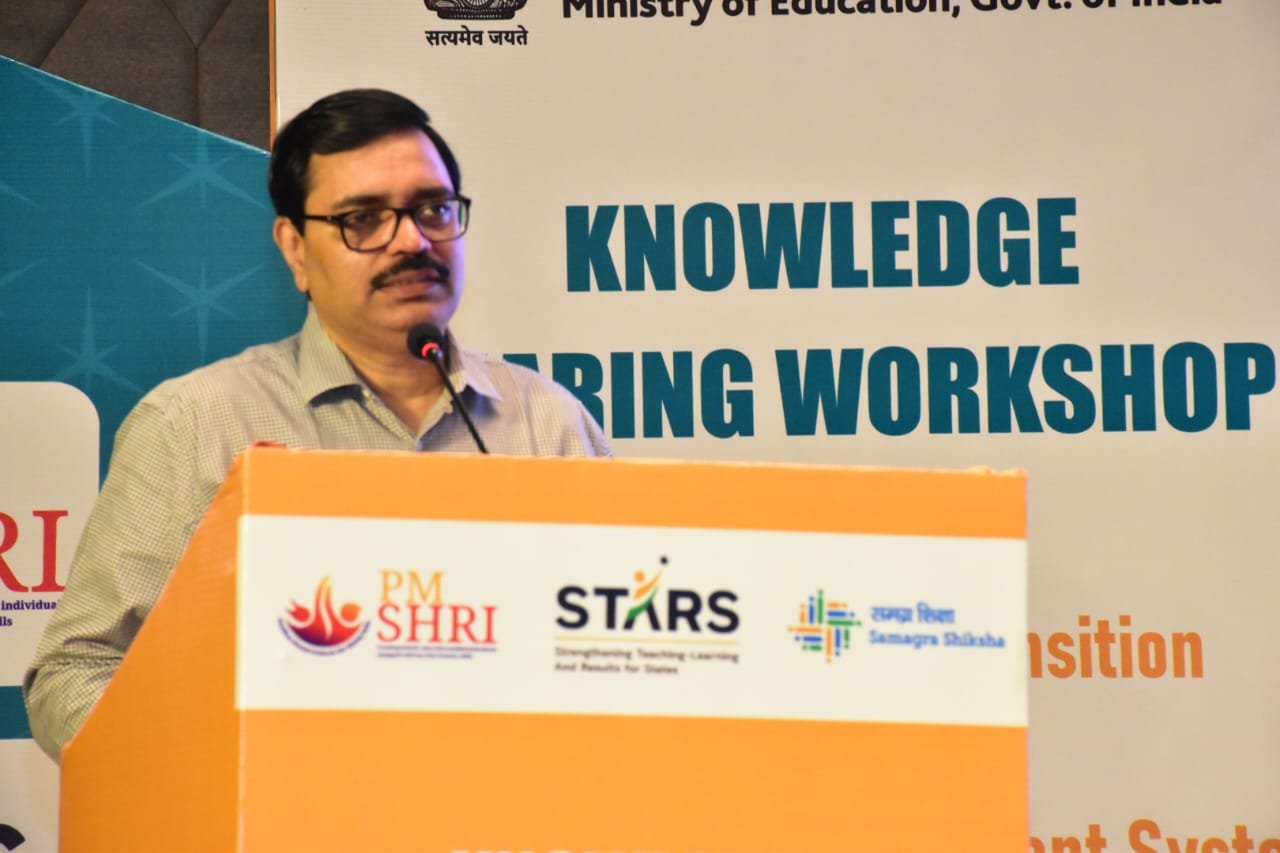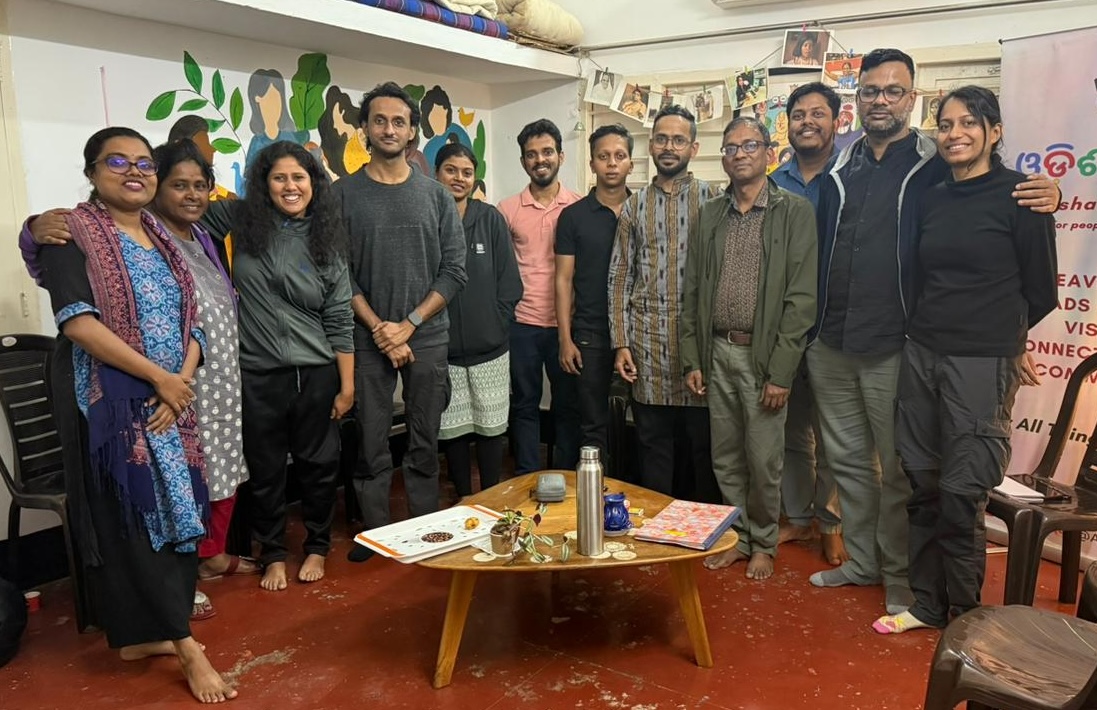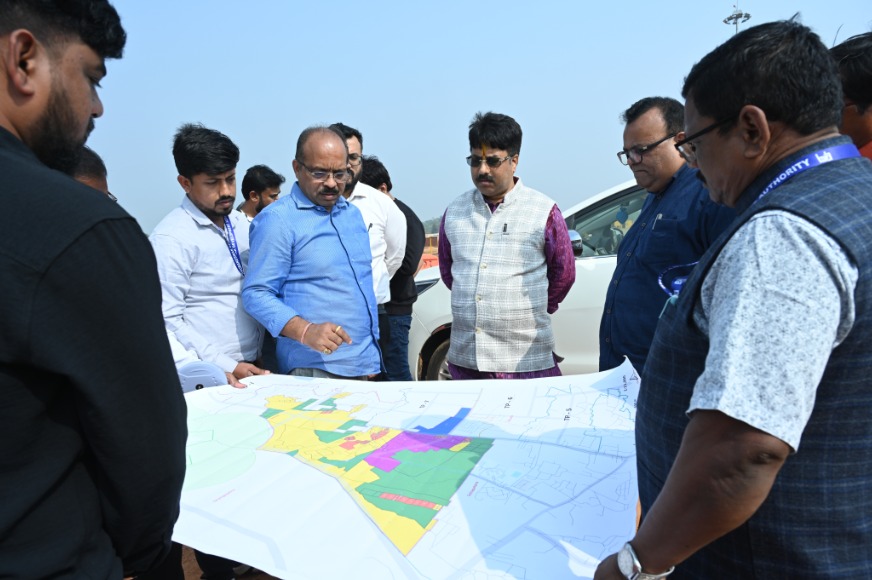Bhopal: The Department of School Education & Literacy (DoSE&L), Ministry of Education, organized a two-day Strengthening Teaching-Learning and Results for States (STARS) knowledge-sharing workshop from September 30 to October 1, 2024, in Bhopal, Madhya Pradesh. The event focused on two key areas: School-to-Work Transition and Strengthening the Assessment System. Inaugurated by Uday Pratap Singh, Minister of Transport and School Education, Madhya Pradesh, the workshop underscored the Ministry’s dedication to fostering an educational ecosystem that prepares students for future workforce challenges.
In his inaugural address, Singh highlighted the pivotal role of the National Education Policy (NEP) 2020 in ensuring the holistic development of students. He also emphasized the importance of the STARS project in transforming India’s education system.
Day 1: School-to-Work Transition
Sanjay Kumar, Secretary, DoSE&L, opened the workshop, stressing the importance of bridging the gap between education and employment. He was joined by Vipin Kumar, Additional Secretary, DoSE&L, and Dr. Sanjay Goyal, Secretary, Department of Education, Madhya Pradesh, who both underscored the significance of cross-state learning in enhancing educational practices.
The first panel discussion, moderated by Vipin Kumar, focused on policy frameworks like NEP 2020, the National Curriculum Framework (NCF), and the National Credit Framework (NCrF). The discussion explored how these policies can facilitate school-to-work transitions by integrating skill education, fostering multidisciplinary learning, and providing real-world exposure through internships.
Prof. Dinesh Prasad Saklani, Director of NCERT, emphasized the importance of aligning curricula with industry demands to smooth the transition from school to work. Biswajit Saha, Director of Skills at CBSE, led a discussion on the challenges of integrating skill hubs in education, sharing best practices for effective implementation.
The day also featured a panel on psychometric analysis and career counselling in skill education, moderated by Dr. Usha Titus, Managing Director of Kerala’s Additional Skill Acquisition Programme. The session addressed evolving trends in career counselling and the role of data from psychometric assessments in shaping future workforce preparedness.
Day 2: Strengthening Assessment Systems
The second day opened with remarks from Vipin Kumar, who highlighted the need for continuous improvements in assessment models. Idzes Angmo Kundan, Principal Secretary, Maharashtra, delivered a presentation on the “3 P approach” to career choice—Personal interest, Parental approach, and Possible Opportunities.
Dinesh Singh Kushwaha, Director of Public Instructions, Madhya Pradesh, presented strategies for enhancing student outcomes through stronger assessment systems. Dr. Jonas Bertling, Director at Educational Testing Service (ETS), discussed innovations in educational assessments, while Dr. Maj. Vishal Sharma of the Himachal Pradesh Board for Secondary Education showcased innovative practices that empower students.
A panel moderated by Pardeshi Siddharth Komal, Principal Secretary of Chhattisgarh, focused on integrating assessment outcomes with decision-making processes, offering insights into data collection and analysis.
The final session, moderated by Dr. M.K. Shanmuga Sundaram, Principal Secretary of Basic Education, Uttar Pradesh, highlighted the importance of assessment cells in improving educational effectiveness. The panel discussed the challenges and strategies for strengthening these cells across states.





